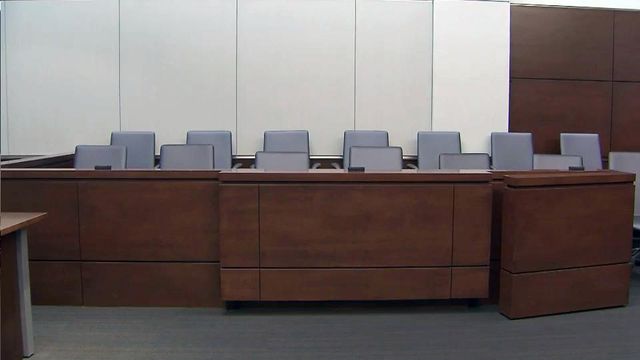Counseling sought for jurors in wrenching trials
The forewoman of the jury that acquitted a Durham County man who said he wasn't aware he had killed his son more than four years ago because he was sleepwalking at the time said Friday that jurors should be able to receive some counseling after enduring such emotionally taxing trials.
Posted — UpdatedThe nine-woman, three-man jury on Wednesday found Joseph Anthony Mitchell not guilty of first-degree murder in the Sept. 22, 2010, strangulation death of 4-year-old Blake and of two counts of attempted first-degree murder in attacks on his older children that same night.
Mitchell, 50, never claimed that he didn't kill Blake, only that he didn't consciously do it. A defense expert said the combination of financial stress the Mitchell was under and a lack of sleep over several weeks led to a case of "non-REM parasomnia," a sleep disorder where Mitchell could perform random acts unconsciously and could become violent if triggered by a loud noise.
Jury forewoman Gwen Vareene-Pierce said she and other jurors were drained after hearing 15 days of emotional testimony and then face the task of setting a child-killer free.
"You have to understand what we were faced with. The judge told us we had to say (guilty of) first-degree (or) second-degree (murder) or not guilty," Vareene-Pierce said, noting there was no evidence Mitchell planned the attacks.
"We didn’t want him to walk out of jail free. We did not want that, but we had to follow the law," she said.
Durham County District Attorney Roger Echols said Thursday that the facts of the case wouldn't support a manslaughter conviction because Blake's death wasn't in the heat or passion or due to any negligence. Irving Joyner, a law professor at North Carolina Central University, echoed that, writing in an email to WRAL News that Mitchell's sleepwalking defense, also called automatism, "relieves the person of any criminal culpability."
"If the jury concluded that malice did not exist, they were correct in rejecting the murder conviction, which has to be established by the jury beyond a reasonable doubt," Joyner wrote. "Automatism is a complete defense to causing the death of another."
For Vareene-Pierce, however, upholding the law came at a price.
"We were all in shambles," she said of the jury. "We were crying. We were shaking. We were praying. We were upset."
"Everybody in that room, even the men, were saying, 'We need help. We need someone to talk to right now,'" she continued.
She said jurors should be provided with counseling, especially for murder trials or deliberating other violent crimes.
"It really depends on your background. What bothers me may not bother you," she said. "I feel like the court system has an obligation to offer that before they send folks out the door and say, 'Go home.'"
The state wouldn't have to pay for the counseling, she said, only provide some direction for jurors who need something "to get them back to where they were when they walked in the door."
North Carolina offered a juror grief counseling program in 2012 and 2013, but it was eliminated due to "lack of demand from jurors," according to Sharon Gladwell, a spokeswoman for the state Administrative Office of the Courts. Only one to two jurors per year used the counseling services, which cost the state roughly $13,000 a year, she said.
"With health insurance providers now covering such counseling services, canceling the program to save state funds seemed to be the right decision to make when faced with budget cuts," Gladwell said in an email to WRAL News.
Vareene-Pierce, who has a background in social work, said counseling ought to extend to people dismissed from jury service before a trial because the jury selection process often forces them to confront troubling issues from their past in front of a courtroom filled with strangers.
"In my realm of work, I know that talking to folks about the past hurts and harms," she said, noting that she had to discuss the death of her child and a man in the jury pool had to discuss his wife's rape.
"I understand the need for that, but the same as I can understand their reason for that, they should understand folks need to be able to put closure (on it)," she said. "If you’re going to open it up for me, help me close it up before you send me out the door."
Even though the state program has ended, Durham County officials urged jurors who need some support after a trial to contact the court administrator's office, and staffers there will do what they can to help.
• Credits
Copyright 2024 by Capitol Broadcasting Company. All rights reserved. This material may not be published, broadcast, rewritten or redistributed.





